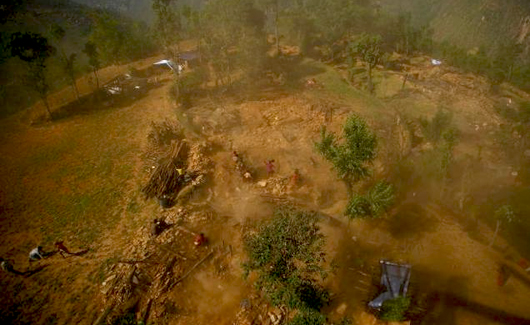Washington, May 15: Scientists have found a towering rock structure deep under East Asia by using 3-D supercomputer simulations of data from 227 earthquakes that hit the region during 2007-2011.
The finding could throw light on the fate of the subducted continental plates beneath the Tibetan Plateau, known as ‘the roof of the world,’ which rises about 5km above sea level.
The work may also help find hidden hydrocarbon resources, and more broadly it could help explore the Earth under East Asia and the rest of the world, researchers said.
“We are combining different kinds of seismic waves to render a more coherent image of the Earth,” said principal investigator and lead author Min Chen from the Rice University.
Researchers combined seismic records from thousands of stations for each earthquake to produce scientifically accurate, high-resolution 3-D tomographic images of the subsurface beneath immense geological formations.
Like a thrown pebble generates ripples in a pond, earthquakes make waves that can travel thousands of miles through the Earth.
A seismic wave slows down or speeds up a small percentage as it travels through changes in rock composition and temperature.
The scientists mapped these wave speed changes to model the physical properties of rock hidden below ground.
“We found that beneath the Tibetan plateau, the world’s largest and highest plateau, there is a sub-vertical high velocity structure that extends down to the bottom of the mantle transition zone,” the principal investigator said.
The bottom of the transition zone goes to depths of 660 kilometres, she said.
“Three-dimensional geometry of the high velocity structure depicts the lithosphere beneath the plateau, which gives clues of the fate of the subducted oceanic and the continental parts of the Indian plate under the Eurasian plate,” she added.
The research was published in the Journal of Geophysical Research, Solid Earth.






Comments
Add new comment